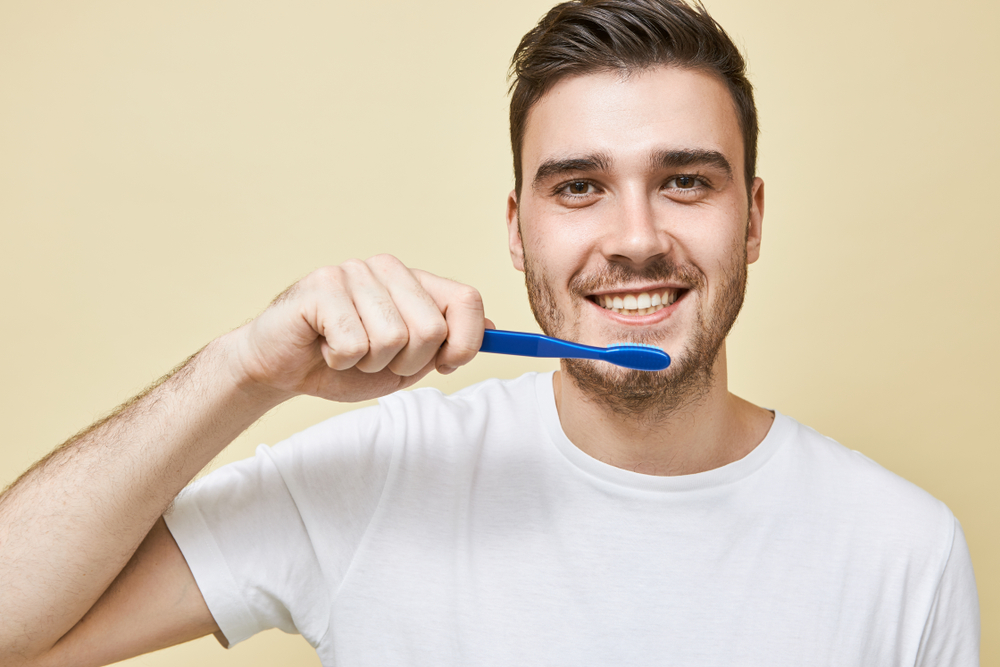
How Your Smile Changes as You Get Older
If it feels like your smile looks different than it did a decade ago, you’re not imagining it. Just as with most things in our bodies, your smile does change with age. From the teeth shifting to the enamel wearing down, the appearance and function of your teeth and bite evolve as you get older. The good news is, there are ways to minimize these age-related changes and keep your smile looking its best throughout your life. Our Shorewood and Naperville orthodontists will be sharing the most common changes and how to prevent or fix them.
Why Does Your Smile Change as You Age?
Some changes are due to natural biological processes, including bone remodeling (the jawbone breaks down and is replaced with new bone cells) and the tendency of the teeth to shift towards each other. Other reasons your smile changes with age may include:
- Regular wear and tear
- Gum recession
- Gum disease, or periodontal disease
- Bone loss
- Dental restorations (crowns, bridges, fillings and dental implants can change your bite)
- Untreated malocclusion (bad bite)
- Forgetting to wear your retainer after braces or Invisalign® treatment
- Oral habits like teeth grinding and clenching, tongue thrust, improper tongue resting position and mouth breathing
- Health conditions, such as oral cancer and diabetes
- Medications, especially if they cause dry mouth
8 Ways Your Smile Can Change With Age
1. Changes in the Length or Shape of Teeth
All of the biting and chewing you do causes the enamel to slowly wear down. Teeth grinding and clenching, known as bruxism, can speed up the process. This impacts your smile by making your teeth look shorter. Teeth can also change shape with age as they wear down.
Gum recession does the opposite by exposing more tooth surface and making teeth look longer. It can also leave visible black spaces between the teeth as pockets form.
Patients sometimes ask, why do your gums recede with age? While receding gums are more common in older people (a study found that 38% of people 30-39 had some degree of gum recession compared to 71% ages 50-59 and 90% ages 80-90), aging isn’t actually a direct cause of gum recession. Instead, aggressive brushing, poor oral hygiene, gum disease, smoking and tobacco use and even genetics contribute to the problem.
Regardless of whether the teeth become shorter, longer or misshapen, the end result is the same. What was once a symmetrical smile with the teeth on either side of the mouth mirroring each other can now look uneven and out of proportion.
2. Worsening of Existing Orthodontic Concerns
Misalignment of the teeth or jaw, known as malocclusion, doesn’t sort itself out. In many cases, if issues like crowding, spacing or an excessive overbite, underbite, open bite or crossbite aren’t treated, they will get worse as you get older.
After years of living with a bad bite, you may also be dealing with the consequences of misalignment, such as tooth decay, gum disease, excessive wear of the enamel, and pressure on the temporomandibular joints (TMJ) that leads to TMJ pain and dysfunction. These issues will create further changes to your smile.
3. Front Teeth Gap
A space or gap between the front teeth, technically called diastema, can be caused by gum disease, the tongue pushing between the front teeth (tongue thrust) or a discrepancy in jaw size that was never treated.
4. Crowded Bottom Teeth
If you experience jawbone loss, the jaw will shrink and teeth will have less space. This is a common reason for crowded bottom teeth that appear in adulthood or worsen with age. Mouth breathing, gum disease and even facial trauma can also be behind bottom teeth crowding.
5. Overlapping Teeth
While bottom teeth crowding is prevalent, the teeth anywhere in the mouth can begin to overlap, including the top teeth. As you get older and the jawbone changes, many people experience what’s known as physiologic mesial drift. It’s a slow, natural shifting of the teeth towards the front of your dental arch. As the teeth move towards the midline, they can overlap. It can be worsened by missing teeth, gum disease, bruxism and decay.
6. Deepening of the Bite
An excessive overbite, or deep bite, is when the upper teeth overlap the lower teeth by a large degree. The bite can deepen with age. Teeth grinding is often a culprit behind the problem, as is a missing lower tooth and shrinkage of the lower jaw.
7. Collapsing Teeth
If you have gaps in your teeth, missing teeth that weren’t replaced or severe wear of the enamel, the teeth around the spaces can collapse inwardly. This is because the teeth try to fill in the empty spaces. As the teeth tilt or shift into the gaps, it will impact the appearance of your smile, as well as your bite. Missing teeth may also change your face shape.
8. Teeth Shifting After Braces or Invisalign®
If you had orthodontic treatment in the past, but forgot to wear your retainer, the teeth will naturally begin shifting back towards their old positions. When do your teeth stop shifting? Unfortunately, they don’t. If you wore your retainer diligently in the years following your orthodontic treatment and then stopped using it, you probably won’t experience huge changes as long as you have good oral health. However, the teeth will move to some extent.
How to Prevent Age-Related Changes to Your Smile
- Keep Up With Regular Dental Care – Visiting your dentist every six months for an exam and cleaning is crucial. Routine care will help to prevent tooth decay and gum disease, which are major contributors to teeth shifting with age. If the dentist does spot problems, such as gum disease or oral cancer, they can treat it early on before it progresses in order to keep your teeth, gums and jawbone in good shape. If you’re in need of a dentist in Naperville, we know a great one!
- Practice Excellent Oral Hygiene – Brushing twice a day with a soft-bristled toothbrush and fluoride toothpaste and flossing once daily will also keep your smile healthy and minimize changes to its appearance.
- Address Oral Habits – Mouth breathing, tongue thrust and bruxism cause changes in your bite. Talk with your dentist about the issues. Treating them will stop the teeth from shifting any further.
- Wear Your Orthodontic Retainer for Life – If you had orthodontic treatment in the past, wearing your retainer will prevent your teeth from moving. To keep all changes to a minimum, wear your retainer every night for life! If your retainer doesn’t fit anymore because you forgot to wear it for a while or you received dental restorations that affected your bite, have a new one made.
- Visit an Orthodontist – If you never had orthodontic treatment before and you find that small issues are becoming bigger ones, visit an orthodontist. At Innovative Orthodontic Centers, Dr. Manal Ibrahim and Dr. Christine Gin treat patients of all ages, including adults. It’s never too late to straighten your teeth and align your bite with braces or Invisalign. In fact, treatment will help to ward off many of the problems that cause changes to your smile and bite as you age.
If you did have braces or Invisalign a while ago and you forgot to wear your retainer or your teeth moved for other reasons, you may not need comprehensive orthodontic treatment. A touch-up with limited treatment followed by wearing a retainer could be enough to get your smile back to where you want it. If you’re a candidate for our Sensational Smiles treatment, you’ll be able to straighten your teeth with Invisalign in half the time and for half the price of traditional treatment.
Find Out How We Can Give You a Timeless Smile
If you want to keep age-related changes to your smile to a minimum or address shifting teeth, schedule a complimentary consultation with a Shorewood or Naperville orthodontist today! Our experts will create a personalized treatment plan to give you a beautiful, healthy smile that lasts a lifetime.





